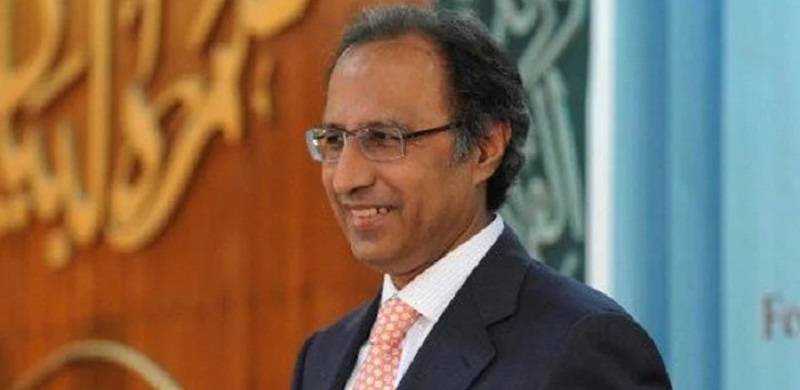
Turncoats in Pakistani politics are not hard to find. Fill up a jar with names of each of the members of Prime Minister Khan’s sizable cabinet and more often than not you will find a turncoat. Some like the Foreign Minister have switched once. Others, like His Excellency the Minister for Science and Technology have made multiple switches. Au contraire, some loyalists who were touted as the ultimate panacea for the Islamic Republic’s economic woes were hastily shown the door to make way for technocratic experts. Few technocrats in Pakistan can boast of having penned a lengthy book on Argentina’s privatisation project. Fewer still can boast of having led doctoral research at Harvard, whilst advising multiple governments in the global South.
With a clipped accent, undoubtedly picked up in his time in Boston’s bustling academic playground, Abdul Hafeez Sheikh has not only served as Sindh’s financial supremo but has been around in various capacities for every government post 1999, save one.
On top of his impressive CV, Sheikh’s demeanour and wardrobe fit the bill for the quintessential economist. A man of high stature: that is what his official website will have you believe. What, then, prompted Sheikh to throw a tantrum when his subordinate MNA Hammad Azhar was elevated to the rank of Federal Minister for Revenue and Economic Affairs? Within 24 hours of Azhar’s elevation he found himself relieved of the revenue portfolio after foreign-educated Abdul Hafeez Sheikh found it an insult to be working with the son of the gentleman who founded the party that gave him his first big break in government. The same son had the gall to assert that dynastic politics in Pakistan is dead. Oh, the irony.
But this is not a piece about tantrums and hypocrisy. This is a piece that calls out the Khan government for their frenzied obsession with technocrats. It is no secret that Khan very much fancies the American style of cabinet appointments. He has pointed to the model as an example many times, when called out for handpicking unelected men and women to his cabinet. A tough pill to swallow for MNAs that have spent a fortune on securing a seat in the Majlis-e-Shoora. Alas, it is only natural for a one-man party to favour the Presidential form of government given its heavy reliance on cult of personality. Khan versus Sharif, not PML-N vs PTI – it is a tantalising proposition.
The advisors and special assistants are numerous and their portfolios at times are baffling, with blatant conflict of interests ignored. Media tycoons advise the premier on PR. Owners of rental/independent power plants and those with investments in alternative energy advise him on energy and the environment. Moguls in the engineering sector advise him on commerce. The list is long and diverse. But why are technocrats all that bad?
We have to look no farther than climate change. ‘Scientisation’ never ends well. Look at the Gore vs Bush case as narrated by science policy expert Daniel Sarewitz. A seemingly simple solution was there, but like Sheikh Saheb on Khanzada’s show, the matter was made needlessly complex. Look at the sheep farmers in Cumbria who lost yield due to a blinkered scientific approach as covered by environmental change expert Brian Wynne. Look at the industrial farming in Prussia and Saxony and its repercussions as covered by political scientist James Scott. Look at Middle Eastern political theorist Timothy Mitchell’s work on the failings of technocrats/donor agencies to stem the proliferation of the Gambiae mosquito in Egypt. And lastly, look at Pakistan. Take your pick.
And let us look at the meteoric rise of petrol prices. After Gohar Ayub gave us a convoluted and half hearted defense, Advisor Nadeem Babar had the audacity to absolve himself of responsibility on the issue, sitting next to his boss, saying that he was merely an advisor. An advisor with the status of Federal Minister, something Babar conveniently forgot.
The chief problem with centralised technocratic expertise is that it fails to account for domestic and practical expertise that natives, by virtue of being tied to a piece of land for sustenance, have gained over time. Technocracy takes a top-down and at times hubristic view of these issues. “Metis” or local knowledge that is only gained through praxis is ignored. Take Abdul Hafeez Sheikh’s World Bank. A plethora of assumptions is baked into the neo-liberal model that makes economic predictions without accounting for financial nuances. I could make a list of the World Bank’s failings but let us revert back to Islamabad. Take accountability advisor Shahzad Akbar. It is unclear where he sits in the hierarchy of the accountability set-up but the rapacious and vindictive manner and pathetic lack of foresight and evidence with which opposition politicians were rounded up by the NAB can surely be credited to him. Post-2023, who knows what manners of revenge will be sought?
In conclusion, we have the likes of Moeed Yousaf and Taina Aidrus. Seemingly well intentioned and sincere yet painfully boring. For well over half a decade PM Khan boasted of his team. A team that would lift Pakistan out of all her problems. Today the team is indiscernible from those of governments past, bursting at the seams with technocrats. The central conclusion is thus about government structure and accountability. Is democracy the best way to hold politicians’ feet to the fire? If so, which form of democracy? The problem is systemic and structural and advocating for an entire governmental system that will solve these issues is beyond any paltry technocratic expertise I might have.
Tujhe Kitab Se Mumkin Nahin Faragh Ke Tu
Kitab Khawah Hai Magar Sahib-e-Kitab Nahin!
“And never from books can you be weaned
Which you declaim, not comprehend”
- Muhammad Iqbal
